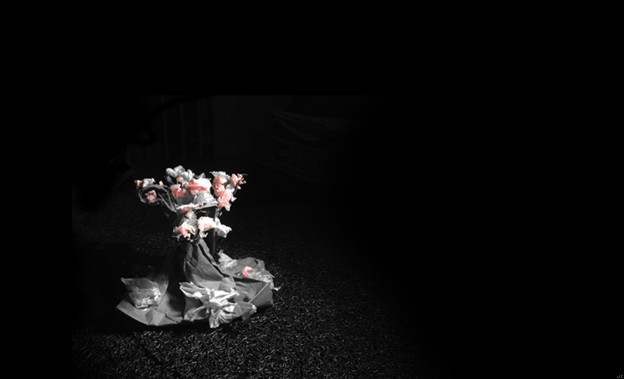A slowing 7: The necessary elusive

Transience, that fleeting way of everything not staying: how can we understand the very condition as it slips through the mind’s slippery fingers? Once awake to its pervasiveness, transience appears everywhere: in poems, in spiritual doctrines, in life’s disappointments, in everything. This attention is a chasing sort of attention, moving always toward what is out of reach, trying to understand what is slipping past understanding. Yet to know this unknowable as pervasive fixes something. A perpetual chasing.
Rilke, grandly, makes us aware that the losses are not only what exists and is then lost. There exists the always-never, and we should attend to what is even already beyond our grasp. In the unforgettable poem “You who never arrived,” he put it this way:
All the immense
images in me--far-off, deeply-felt landscape,
cities, towers, and bridges, and un-
suspected turns in the path,
and those powerful lands that were once
pulsing with the life of the gods--
all rise within me to mean
you, who forever elude me.
(Rilke 131)
In everything there is something eluding us. My own long curiosity about the always-fleeting – that is to say, in a sense, loss – entered my poetics as early as late adolescence – later becoming an investigation of the unsayable. How can the poet write what cannot be said? How do we attempt to capture that ungraspable? And why? The chasing shifts uphill.
Poetry of specific loss is poetry that we expect to tap into a feeling of the fleeting. Grief. We expect, perhaps, most or even all poetry to elicit a pause that “captures,” that holds a feeling, stills. Often the pause buoys a rush of affection – especially in love poetry, but there is an affective emotion even in poetry of a more cerebral variety. Poet becomes not only a maker but a doer: stop, feel.
That purposeful gesture but toward the thing that slips away and the poem trying to fix it, fix you, “who forever elude me.”
We read, say, Neruda’s love sonnets with some expectation of return to proximate longing. What are we chasing after when we understand that we are reaching for what is transient? What does desire give us?
The poem moves us into the uncertainty of knowledge, requiring patience with unknowing, intimacy with the vastness of all that is beyond us. Loss is entangled with longing, and in this absence we do grasp something. Heraclitus, over two and half millennia ago, understood:
Whoever cannot seek
the unforeseen sees nothing,
for the known way
is an impasse.
(Heraclitus 7)
The seeking itself is the not-nothing. Prolific during another period of unrest in Greece, Modern Greek poet Yannis Ritsos -- relentless in the expression of unknowing – begins the poem “Signals” with “Later”:
Later the statues were completely hidden by weeds. We didn’t
know
if the statues had grown smaller or the weeds taller.
If “later” the statues were hidden, there might have been a time when our art was available. The poem urges us recognize “Signals,” even as the images elude us. The ancient terebinth tree both obscures and attends to the hidden art. The poem continues:
Only
a huge bronze arm could be seen above the terebinth
shaping an unseemly, terrible benediction. The woodcutters
went by on the lower road—they didn’t turn their heads.
The women didn’t lie down with their men. Nights
we would hear the apples falling into the river one by one; and
then
the stars quietly sawing through that raised bronze arm.
(Ritsos 51)
There is so much not being done. Not known, not turned, not lying, not listening. But the hidden statues, they are still there, “a huge bronze arm could be seen” even if we don’t understand the nature of the statue's loss, the weeds’ dominance. Who is paying attention?
The transient may be what we recognize and lose, what we grieve. But in tension with the fleeting must be vigorous attention to the all-but-unnoticed, the “unforeseen,” the elusive that exists, as Rilke insists, “who were lost from the start.” To trust only in the known and lost, in the understood, is yet another arrogance that violates the possibilities of art’s work. The purposeful gesture, a reach often – desirous, longing – toward a knowing that is other than “the known way” or the familiar is necessary for the decentering. We may recognize some lost thing, but recognition alone often leaves us at "an impasse."
Heraclitus. Fragments. trans. Brooks Haxton. New York: Penguin Classics, 2003.
Rilke, Rainer Maria. The Selected Poetry of Rainer Maria Rilke. trans. Stephen Mitchell. New York: Vintage, 1989.
Ritsos, Yannis. Exile & Return: Selected Poems 1967-1974. trans. Edmund Keeley. New York: Ecco, 1985.
A slowing: Poetics and attention